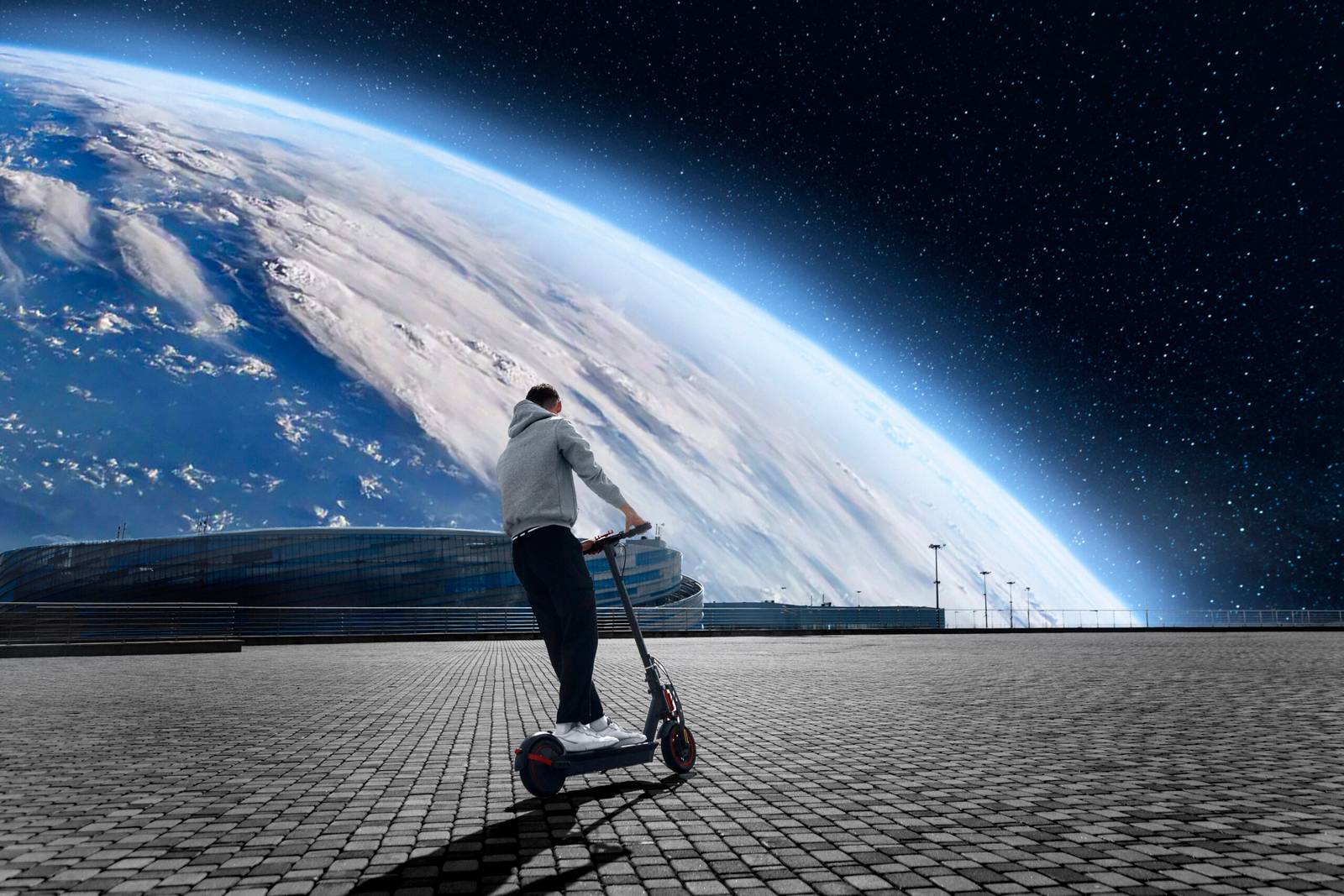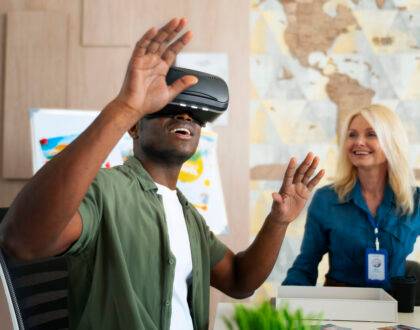The Role of AI in Space Exploration

by Web Digital
As humanity looks beyond the confines of Earth and endeavours to explore the vastness of space, artificial intelligence (AI) has emerged as a crucial ally in our quest for knowledge and understanding of the cosmos. This article delves into the multifaceted role of AI in space exploration, from autonomous spacecraft to data analysis, and explores how this symbiotic relationship is propelling our exploration of the final frontier.
Autonomous Spacecraft Operations:
One of the primary applications of AI in space exploration is the autonomy of spacecraft operations. Traditional space missions involved ground-based teams meticulously planning and controlling every aspect of a mission. With AI, spacecraft can exhibit a level of autonomy that is essential for missions where communication delays make real-time control impossible. Autonomous systems equipped with AI can make split-second decisions, adjust trajectories, and adapt to unforeseen challenges, enhancing the overall efficiency and success of space missions.
Machine Learning in Mission Planning:
Machine learning algorithms play a pivotal role in optimizing mission planning. These algorithms analyze vast datasets, including orbital mechanics, celestial body characteristics, and spacecraft capabilities, to identify the most efficient routes and mission parameters. By leveraging machine learning, space agencies can enhance mission success rates, reduce costs, and explore more celestial bodies within a given timeframe.
Data Analysis and Pattern Recognition:
Space missions generate colossal amounts of data, ranging from images captured by telescopes and satellites to readings from various instruments on spacecraft. AI, particularly in the form of neural networks, excels in processing and analyzing such data. Pattern recognition algorithms can identify celestial objects, analyze atmospheric conditions, and detect anomalies, providing scientists with valuable insights into the mysteries of the cosmos.
Robotic Exploration and Sample Analysis:
AI-equipped robotic systems are at the forefront of planetary exploration. Rovers on Mars, such as NASA’s Curiosity and Perseverance, utilize AI to navigate the Martian terrain, avoid obstacles, and make decisions about where to collect samples. AI also plays a crucial role in the analysis of collected samples, helping scientists identify potentially habitable environments or signs of past microbial life.
Space Telescopes and Exoplanet Discovery:
Space telescopes, such as the Hubble Space Telescope, have been instrumental in expanding our understanding of the universe. AI is being employed to enhance the capabilities of these telescopes. Machine learning algorithms can sift through massive datasets, identify distant galaxies, and even assist in the discovery of exoplanets by detecting subtle changes in the brightness of stars, signalling the presence of orbiting planets.
Predictive Maintenance for Spacecraft:
AI’s ability to predict system failures is valuable in the harsh environment of space. Predictive maintenance algorithms analyze the performance data of spacecraft components and predict when maintenance or repairs are likely to be needed. This proactive approach helps extend the operational life of spacecraft, reducing the risk of mission failure due to mechanical issues.
Communication Optimization:
Deep space missions face communication challenges due to vast distances and signal delays. AI is used to optimize communication systems, adjusting data transmission rates and prioritizing information based on mission objectives. This ensures that critical data reaches Earth efficiently while maximizing the use of available bandwidth.
Challenges and Considerations:
Limited Computing Resources:
Spacecraft have limited computing resources, and the power constraints of space missions necessitate energy-efficient AI algorithms. Balancing computational complexity with resource limitations is a significant challenge in designing AI systems for space exploration.
Adaptability to Unknown Environments:
AI systems need to adapt to unforeseen environments and challenges during space missions. The ability to learn and make decisions in real time is crucial for autonomous systems operating in the dynamic and unpredictable conditions of space.
Data Security and Reliability:
The reliability of Artificial intelligence predictions is paramount in space exploration. Ensuring the security and integrity of data, especially when transmitted over vast distances, is critical for making informed decisions and avoiding mission-critical failures.
Ethical Considerations:
As AI becomes more integral to space exploration, ethical considerations come into play. Questions about the autonomy of AI systems, decision-making in ambiguous situations, and the potential impact on the search for extraterrestrial life raise ethical dilemmas that require careful consideration.
The Future of AI in Space Exploration:
The synergy between AI and space exploration is poised to deepen as technology continues to advance. Future missions to the Moon, Mars, and beyond will likely rely even more on AI to navigate, analyze data, and conduct scientific experiments. Here are some potential advancements:
AI-Driven Space Habitats:
As humanity aims for sustainable space exploration, AI could play a pivotal role in managing and optimizing life support systems, ensuring the well-being of astronauts, and addressing unforeseen challenges in extraterrestrial habitats.
Swarm Robotics for Space Exploration:
AI-driven swarm robotics could be employed for collaborative exploration of celestial bodies. Swarm systems, composed of multiple small robotic units, can cover larger areas, collect diverse data, and collaborate on complex tasks, enhancing the efficiency of space exploration missions.
AI in Space Telescopes and Observatories:
Future space telescopes and observatories may incorporate advanced AI algorithms to autonomously prioritize observations, identify interesting celestial events, and optimize data collection strategies based on real-time conditions.
Conclusion:
The integration of AI into space exploration represents a paradigm shift in our approach to understanding the cosmos. From autonomous spacecraft operations to data analysis and predictive maintenance, AI enhances the capabilities and efficiency of space missions. As we embark on ambitious endeavors to explore the Moon, Mars, and beyond, the role of AI will undoubtedly grow, opening new frontiers in our quest to unravel the mysteries of the universe.
While challenges persist, the collaborative efforts of scientists, engineers, and AI specialists continue to push the boundaries of what is possible in space exploration. The evolving relationship between AI and space exploration holds the promise of not only expanding our scientific knowledge but also paving the way for future human exploration and potential discoveries that could reshape our understanding of the cosmos.
Recommended Posts

The Evolution of AI in Education
December 4, 2023

Blockchain and the Future of Digital Voting
December 4, 2023

